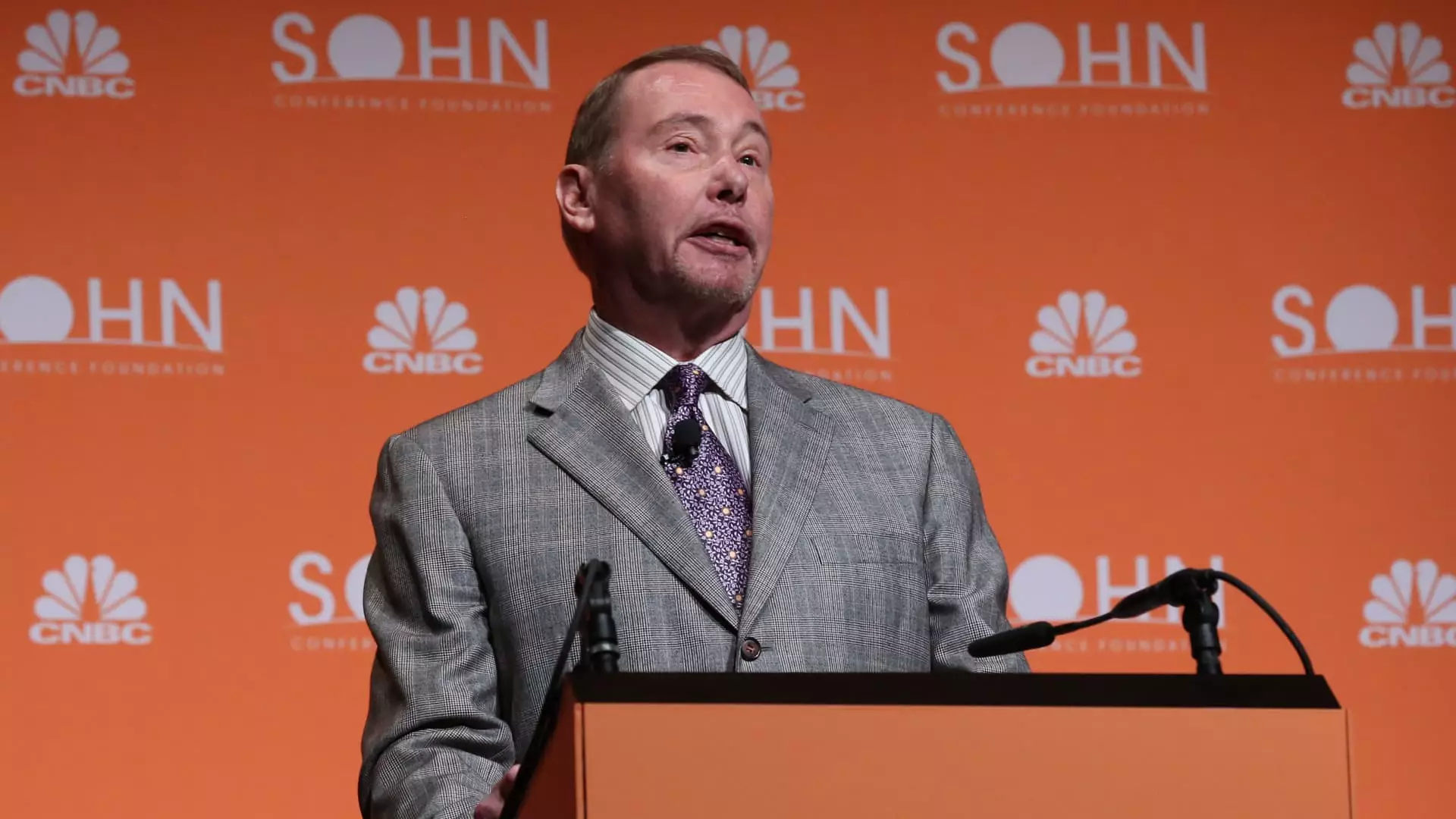In the dynamic landscape of U.S. fiscal policy, the shifting political tides can have profound implications for interest rates. Recently, Jeffrey Gundlach, the CEO of DoubleLine Capital, highlighted a potential scenario in which Republican control of the House could lead to higher interest rates. With the prospect of President-elect Donald Trump wielding enhanced authority to pursue his spending agenda, Gundlach anticipates that this could prompt an increase in government borrowing. Such actions would likely exert upward pressure on bond yields, altering the broader economic environment.
The concern surrounding rising interest rates is not merely speculative; it is rooted in the current fiscal realities facing the government. With the U.S. grappling with a staggering budget deficit that surpassed $1.8 trillion for Fiscal Year 2024, the implications of increased spending could exacerbate the nation’s already precarious financial situation. Gundlach’s outlook points to a scenario where sustained government expenditure could necessitate further Treasury issuance, intensifying competition in the bond market and, consequently, pushing yields higher.
As political machinations unfold, the Federal Reserve remains a central figure in economic stability. Following the recent interest rate cuts, there is speculation that the Fed will implement further reductions in the near future. Additionally, market analysts anticipate multiple cuts throughout 2025 as the central bank responds to evolving economic conditions. However, policymakers must carefully navigate the complexities of fiscal stimulus measures that may alter the trajectory of interest rates.
The juxtaposition of Fed actions with rising government debt presents a dilemma for economic planners. A potential Republican sweep in Congress could prompt aggressive fiscal initiatives, including tax cuts and significant spending plans. While Trump advocates for pro-cyclical policies, an influx of debt could lead to a precarious balance between stimulating the economy and managing inflation. Gundlach’s insights reflect a broader concern that prolonged increases in government spending could compel the Fed to recalibrate its strategies to ensure stability.
Despite the potential for rising interest rates and an increasingly burdensome fiscal picture, Gundlach maintains that the Trump administration could decrease the likelihood of a recession in the near term. By advocating for expansive financial measures and tax relief, the administration may provide an impetus for economic growth, which could mitigate recessionary pressures. This perspective underscores the multifaceted nature of economic forecasting, where political decisions can significantly influence market dynamics.
As investors and analysts assess the implications of political uncertainties on the economy, Gundlach’s predictions underscore the importance of vigilance in monitoring fiscal policy shifts. The landscape remains volatile, and decisions made in Congress have the potential to reshape the economic environment. In this context, understanding the interplay between political power, fiscal responsibility, and interest rates will be crucial for stakeholders navigating the complexities of the financial markets in the coming years.

